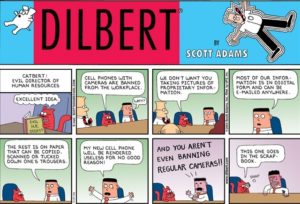
It certainly felt like several hours had passed, but in fact it was only twenty minutes before DCI Fritz of the Peterborough CID arrived, followed shortly by his forensics, coroner and crime scene crew (collectively referred to as SOC). After asking Zelda if she would bear with him for a while before he interviewed her, if she’d like a cup of tea and perhaps to wait in the cafeteria, and accepting her thanks for the tea but that she’d wait right there, Fritz began the routine investigation that every sudden death and potential crime scene warranted. Always mindful of the SOC experts doing their preliminary examination of the body in situ, their photographic studies and fingerprinting of the surroundings, their retrieval for detailed analysis of all electronic devices, and so much more, DCI Fritz began his own assessment of the scene.
DCI Fritz was not a digital native, but he knew from his experience and training how much valuable information could be obtained from the digital, including video, records that surround all of us and from our social media exhaust. His team would take care of probing those sources carefully. But he also knew that, even at the end of 2016, most people still left a fair amount of physical detritus in their wake, from sticky notes inside their tablets with critical passwords to receipts — yes, some transactions still produce paper receipts — in their pockets. And the sudden death of someone, in their own office, inside a tight security building (security which had been tightened even further when Great Software housed their “bet the farm” next gen architecture project there), made a quick and then meticulous search of that office a focus for DCI Fritz.
Doing that quick first look, and remembering that DCI Fritz didn’t yet know who Cummins had been, the nature of his work, etc., two things really stood out. First, there were stacks of carefully labeled manila folders on Cummins’ desk, each with what appeared to be a person’s name on the tab. They were filled with printouts of electronic records, many with handwritten notes and multi-colored tick marks, as well as handwritten records. Second, there was a giant chart on the wall-sized whiteboard across from the desk whose rows were unknown names, whose columns had names which, on first glance, seemed to match those the folders, and whose cells were filled with multi-colored marks whose decoding wasn’t obvious. Taking pictures of the chart on his phone and gathering up the folders once the fingerprint folks had done their thing, Fritz decided it was well past time to speak with Ms. Kahneifmeyer.
Stay Tuned For Chapter V